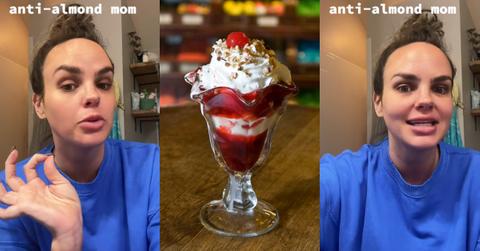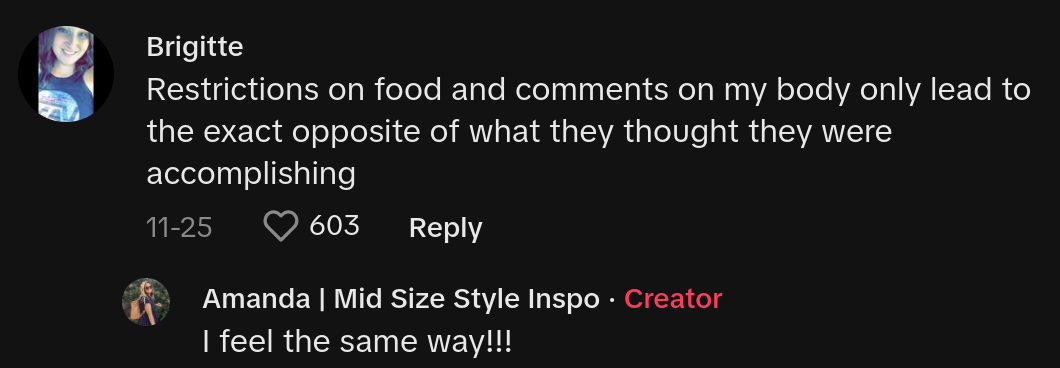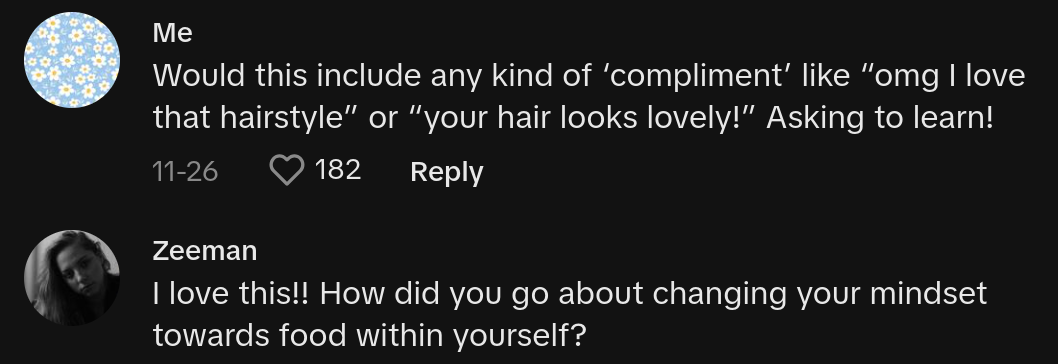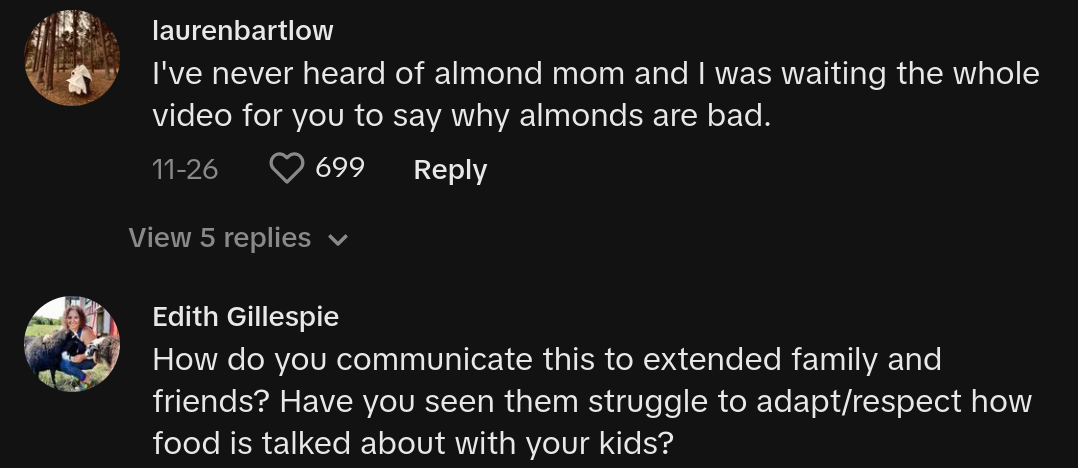"You Can't Earn Treats" — “Anti-Almond Mom” Slams Practice of Using Food as a Reward
Published Dec. 6 2023, 4:31 p.m. ET

A woman on TikTok is receiving praise for her approach to creating a healthy relationship with food for her children after being shamed for the way she ate when she was young.
The social media user, Amanda (@helloamandaleigh), uploaded a viral TikTok that's accrued over 294,000 views on the application delineating how she reshaped attitudes and language towards body image, food, and challenging the notion of foods as a "reward" for displaying certain behaviors.
Amanda begins her video by stating that she's working towards becoming an "anti-Almond mom," and that her perspective on directing her children's eating habits, along with their perceptions of their bodies was informed by a lifelong struggle with getting to her desired weight.
"Number one, we do not comment on people's bodies. This includes the size of their bodies, but also how they wear their hair maybe the type of clothes they wear."
Amanda said that ultimately she wants to foster a sense that people's bodies are "neutral" in her household, which even extends to people's "health," highlighting how she corrected a quip her father made about Santa needing to go on a diet.
The TikToker remarked that she quickly "corrected" her dad saying that they aren't Santa's doctors, so they're not qualified to speak to his health.
Another point she drove home is that "behavior" isn't rewarded with food. "You can't earn food, we don't earn treats. Food is not a reward."
Instead, Amanda wants to foster the idea that "food is for energy" with her children: "we took about food in a very neutral way," she says, while highlighting a topic that she would talk positively about, like her kid having a "good day at school," which she punctuates with a high five. "But don't ask me for ice cream, I'm not giving you ice cream because you had a good day at school."
She broke down her philosophy of not making treats a reward: if a kid wants to have ice cream because their body is telling them that they want ice cream, then that's fine. She says that by not attributing a rarefied status to certain food items, like sweet treats, that her kids ultimately don't perceive it as a dopamine rush they want all the time: eventually they get sick of it.

The Anti-Almond Mom says that this philosophy even extends to the vernacular in her home: she's barred the word "diet" and "treats" from her family's vocabulary. She says that because she's never created an association between "earning things" in the form of a "food reward," her kids don't even broach the topic of receiving snacks or goodies for behaving well.
A similar ideology applies to trying on clothes as well. Amanda says that she won't negatively comment on her own body — instead of saying that she won't fit into a shirt or a pair of jeans, she'll instead say that the clothing doesn't fit instead.
Oh and if you grew up in a family that made it mandatory for kids to clear their plates and hated being forced to scarf down all your food in a single sitting, then you will probably like Amanda's take on that practice as well.

"We do not subscribe to the 'clean plate club.' Meaning, we don't tell our children that they have to eat what's on their plate. We provide a meal to them, they eat what they want, they can ask for seconds if they like and if they say I'm not hungry, if they're not hungry the plate goes into the refrigerator until they say they're hungry again," she said.
She summed up this idea by stating: "We honor their hunger cues and when they say they're full, we believe them."
And on the flip side, if one of her kids does decide to clear their plate, Amanda added that her and her husband never "comment about the volume that they're eating," instead opting for phrases like, "wow your body was really hungry today."
Towards the end of her clip, Amanda explained why she's taken this approach to shaping her children's perception of food: "I do this because there are so many times in my life in my childhood that I remember adults making comments about the foods that I were eating or not eating or my family putting a lot of restriction on what I could and couldn't eat, and it definitely created very disordered eating in me."

She ended her video by stating that ultimately she "just want[s] her children to avoid that," adding that both of her kids are "super healthy."
Numerous viewers who saw Amanda's post applauded her approach, with one person commenting that while some parents and family members may think addressing what they perceive to be an issue with a child's eating habits as a way of tackling said problem head on, that it's ultimately counter-productive.
"Restrictions on food and comments on my body only lead to the exact opposite of what they thought they were accomplishing," they said.
Someone else wrote: "As a primary care provider and mom, I love this!"
Another TikToker said that they grew up in a "food reward" household and that it ultimately put them on a path towards: "Food was always an award growing up. It got out of hand as an adult"